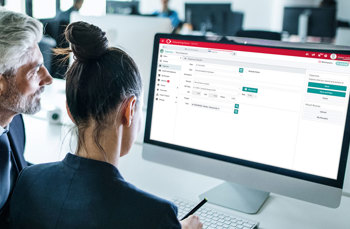VAT compliance: How to manage VAT on expenses ethically and legally?
When you are doing your VAT return it can often be tempting to just take staff expenses as read. After all, they probably only account for a small part of your return, so they don’t really matter, right? But does VAT compliance have a say in all of this?
Actually, one of the first places that inspectors go to when you get a VAT visit is staff expenses. This is because it’s a really good guide as to how you are managing your VAT responsibilities and gives them an insight as to whether there may be problems elsewhere.
Sloppy expenses mean sloppy VAT
It is really important that you remain compliant when you are managing VAT on staff expenses, otherwise it could cause VAT inspectors to look in more detail at the rest of your business.
In this post, we’ll give you some tips as to how you can make sure you are compliant.
Ignore what you have always done
This is one of the issues that give you that sinking feeling in the pit of your stomach – the knowledge that you have been doing something wrong for a long period of time.
We’ve all done it.
Maybe you took over the job from someone else and just carried on with the way they did the job.
Or perhaps you set up a method or system which was compliant back in the day but where the rules have changed and you haven’t noticed.
So, the message here is simple, ignore the ‘way we’ve always done it’ and assess every part of your processes against the current rules.
Understand the rules
VAT registration is mandatory for businesses that meet certain criteria, and VAT-registered businesses must comply with country-specific VAT regulations.
If you are going to check your processes against the current rules then you need to make sure that you understand the rules as they apply to your organisation.
The problem is that the VAT legislation by its very nature has to be fairly general in nature and your company could have some odd little quirks regarding the way it pays for expenses that could cause issues.
If you have a fairly simple and straightforward process then all well and good but if you do have something that is a little out of left field then we’d absolutely suggest you take specific advice from HMRC or your VAT advisor or failing that, change your process to make it compliant.
Make sure you understand what your system is doing
When you have an all-singing, all-dancing expenses system it can be tempting to just trust to luck that what it is doing is correct but doing this could cost you more time than you are saving.
Expenses systems are only as good as the configuration and if you have the wrong VAT code set up for a particular expense, or if your reports are incorrectly set up then you are going to have problems.
We’d suggest taking a sample of a good cross-section of your expenses claims and manually working them through, then comparing this to the output that you get from your system.
In this way, you’ll spot any areas that aren’t working as they should be and you can track back to find the configuration issue that is causing the problem.
As real-time reporting of VAT transactions is becoming increasingly common and tax authorities in many countries require businesses to submit VAT invoices electronically, you might want to invest in a financial management system that bridges the gap between expense management and reporting.
This is crucial since both the UK and many EU countries have their own VAT compliance obligations, and businesses that operate globally must ensure they are in compliance with all relevant VAT regulations.
Check for private use
This is an area that often causes problems, especially with directors!
If you provide a payment method for your staff, perhaps a company credit card or fuel card then you need to be extra vigilant and make sure that the costs they incur are wholly for business purposes.
You can only claim the VAT back on the business element of expenses so where an employee accidentally puts their shopping on their company credit card this needs to be highlighted and removed from your return.
Make sure you are handling fuel correctly
This is an area that often catches people out and it deserves a much longer post which you can find here.
It’s suffice to say that you need to make sure you understand the rules around fuel, whether you are paying for a mileage claim in a private car or where the employee has a company car and claims back the fuel.
Looking for more advice on VAT on expenses?
We’ve only scratched the surface of the topic of VAT compliance here but it has to be noted that it can be a complicated subject, especially where cases aren’t clear-cut.
We've got many articles and three in-depth guides that go into these topics in more detail.
VAT on expenses guides
Handy guides for you to download and keep in your back pocket.

The ultimate guide to VAT on expenses
Master the basics of VAT on expenses and be confident in what you can claim for with this guide.

The 7 step guide to getting compliant
Ensuring you get, and stay, VAT compliant with Expenses can seem like a mammoth task. With our step by step guide, you can be confident you're not missing a thing.

The guide for what you could be missing
Whether you're a VAT veteran or a VAT virgin, VAT on expenses can still be a subject that gives accountants sleepless nights. This guide walks you through all of those commonly missed items in one download.
VAT on expenses information and advice

The basics of subsistence and VAT
Go to article
Why Jaffa Cakes have an important role to play in Expenses and VAT
Go to article
Mileage allowance and VAT
Go to article
10 tips to help you manage your expenses and VAT
Go to article
Rules on expenses and VAT when staying away from home on business
Go to article
Features of a great expense management system
Go to article
VAT on staff business travel
Go to article
Should you add VAT to expenses your customers will be paying?
Go to article

 AU & NZ
AU & NZ
 SG
SG
 MY
MY
 US
US
 IE
IE